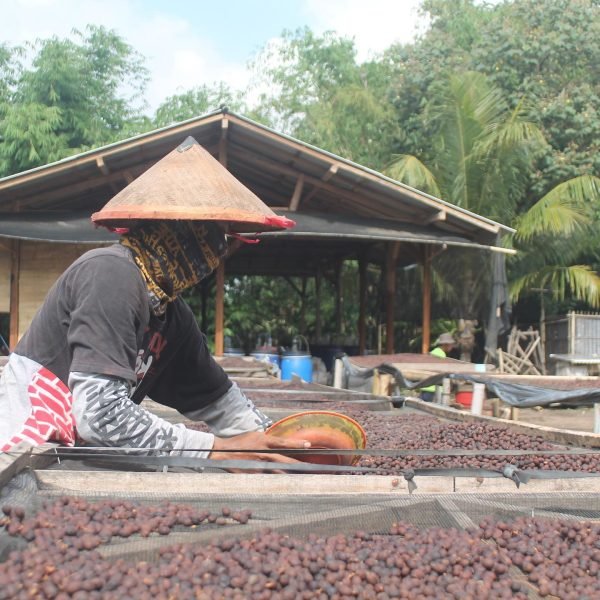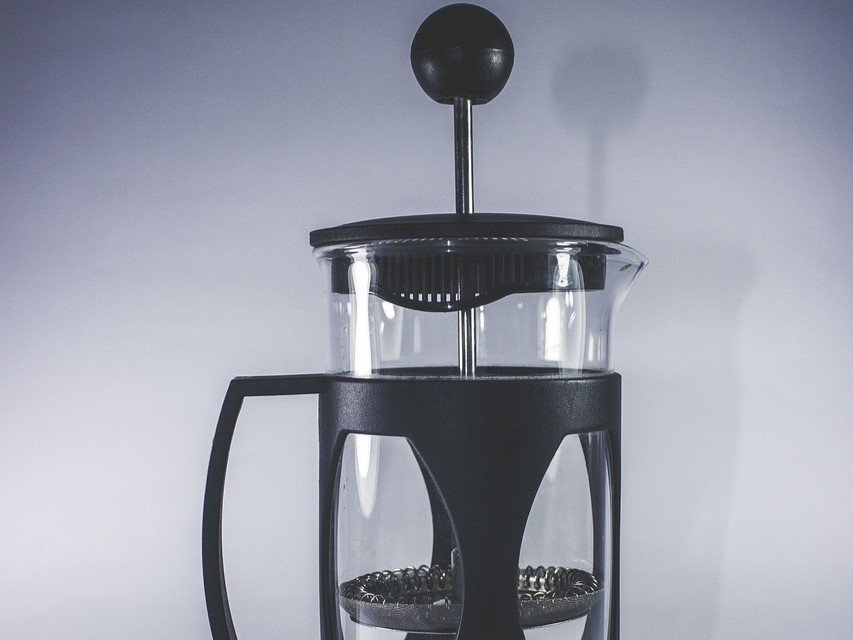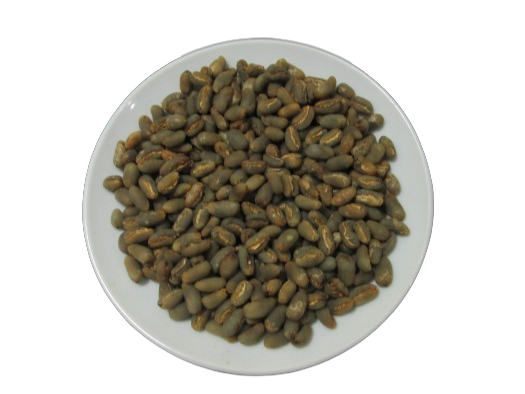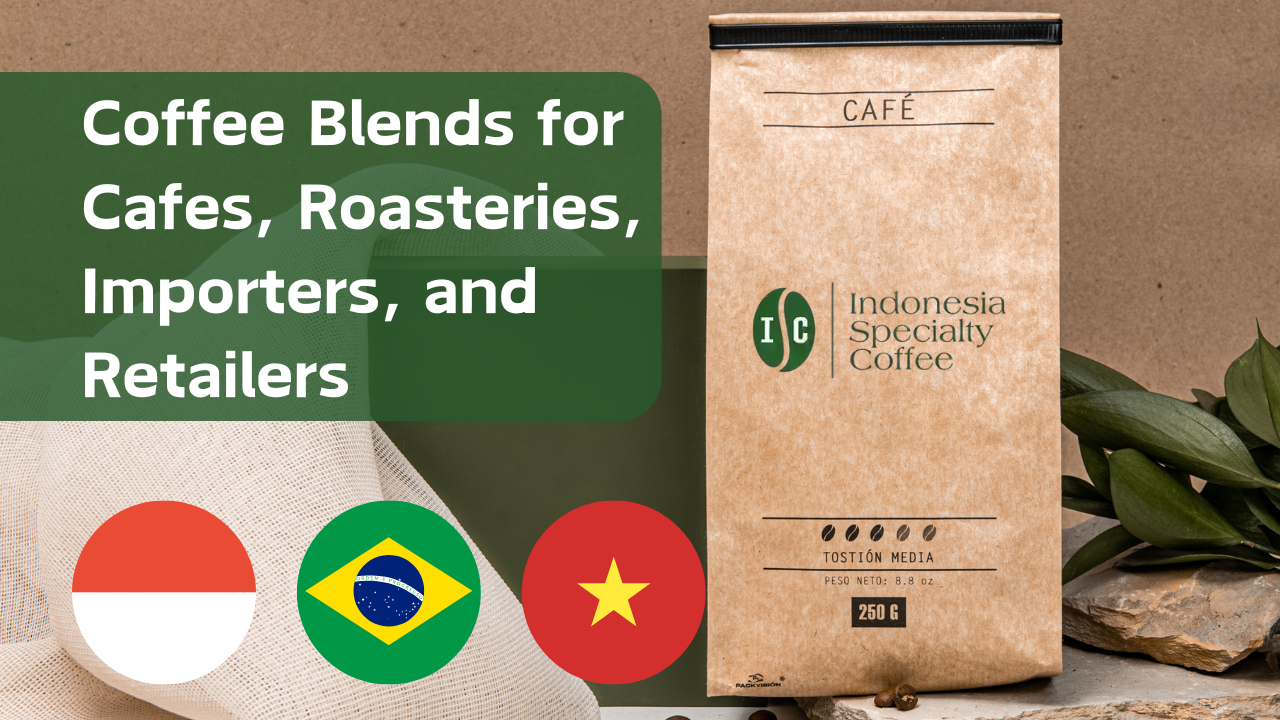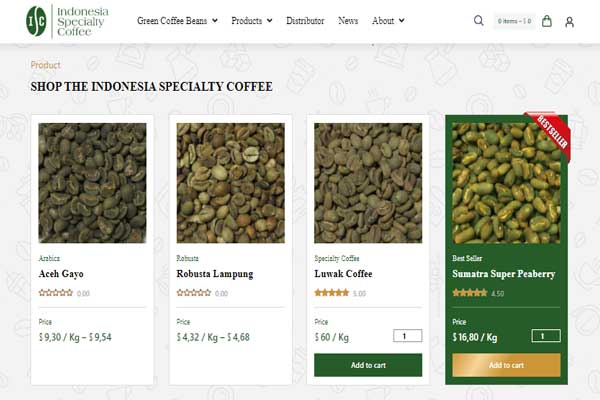Here are Indonesia Coffee wholesale: 10 things you need to know. Indonesia is not only famous for its stunning natural landscapes and diverse culture but also for its rich coffee heritage. Indonesian coffee, with its unique flavors and profiles, has gained international recognition and a dedicated following. For coffee enthusiasts and entrepreneurs looking to delve into the world of coffee wholesale, Indonesia is a treasure trove of opportunities. In this article, we’ll explore ten essential things you need to know about Indonesia coffee wholesale.
1. Indonesia Coffee Wholesale: Indonesia’s Coffee Varieties:
Indonesia is renowned for its distinct coffee varieties, including Sumatra, Java, Bali, and Sulawesi. Each region offers unique flavor profiles, making Indonesian coffee a versatile choice for wholesale buyers. Sumatra coffee, for example, is known for its full-bodied, earthy flavors, while Java coffee boasts a well-balanced acidity.
2. Arabica vs. Robusta:
Indonesia produces both Arabica and Robusta coffee beans. Arabica is grown predominantly in Sumatra, Bali, and Java, while Robusta is found in regions like Lampung. Understanding the differences between these two varieties is crucial when sourcing coffee for wholesale, as they have distinct flavors, aromas, and market demands.
3. Coffee Growing Regions:
Indonesia’s diverse geography and climate create ideal conditions for coffee cultivation. The archipelago’s volcanic soil, high altitudes, and equatorial climate contribute to the unique taste profiles of Indonesian coffee. Buyers must consider these factors when selecting coffee beans for their wholesale business.
4. Sustainability and Certification:
Many coffee buyers today prioritize sustainability and certification. Indonesian coffee producers have recognized this trend and are increasingly adopting sustainable farming practices and certifications like Fair Trade and Organic. When engaging in Indonesia coffee wholesale, you should inquire about these aspects to meet the ethical standards of your market.
Sustainability and ethical considerations have become integral components of the global coffee trade, including Indonesia coffee wholesale. As consumers increasingly seek products that align with their values, understanding the sustainability practices and certifications associated with Indonesian coffee is vital for both buyers and sellers in the industry.
1. Sustainable Farming Practices:
Indonesia, as a major coffee-producing country, has recognized the importance of sustainable farming practices. Coffee growers across the archipelago are implementing techniques that prioritize environmental stewardship, social responsibility, and economic viability. These practices include:
- Shade-Grown Coffee: Many Indonesian coffee farms cultivate coffee under the shade of trees, which not only provides a more suitable microclimate for coffee plants but also preserves the natural ecosystem.
- Crop Rotation: Farmers are increasingly employing crop rotation strategies to maintain soil health and prevent soil degradation.
- Natural Pest Control: Integrated pest management techniques reduce the need for chemical pesticides, promoting a healthier environment for both coffee plants and surrounding ecosystems.
2. Fair Trade Certification:
The Fair Trade certification is widely recognized in the coffee industry, and many Indonesian coffee producers have embraced this ethical trade model. Fair Trade ensures that coffee farmers receive fair prices for their products and provides a range of community benefits. When buying Indonesia coffee wholesale with Fair Trade certification, you are supporting:
- Fair Prices: Fair Trade guarantees a minimum price for coffee, which helps small-scale farmers earn a decent livelihood.
- Community Development: A portion of Fair Trade premiums is invested in community development projects, such as schools, healthcare facilities, and clean water initiatives.
- Environmental Sustainability: Fair Trade encourages environmentally friendly farming practices and sustainable resource management.
3. Organic Certification:
Organic coffee is produced without synthetic chemicals, pesticides, or fertilizers. Many Indonesia coffee producers are transitioning to organic farming methods due to increased demand for organic products. When choosing organic Indonesian coffee for wholesale, you are promoting:
- Chemical-Free Production: Organic coffee ensures minimal environmental impact and reduces the risk of harmful chemical residues in the coffee beans.
- Biodiversity Conservation: Organic farming often involves shade-grown coffee, which supports biodiversity by preserving natural habitats.
- Health Benefits: Organic coffee is perceived as a healthier choice by consumers who want to avoid exposure to synthetic chemicals.
4. Rainforest Alliance Certification:
The Rainforest Alliance certification focuses on environmental conservation, social equity, and economic viability. Many Indonesian coffee farms have received this certification, which promotes:
- Environmental Conservation: Rainforest Alliance certification ensures that coffee production is carried out in a manner that protects forests, wildlife, and water resources.
- Worker Welfare: The certification emphasizes fair labor practices, ensuring that workers are treated with respect and receive fair wages.
- Community Development: Similar to Fair Trade, Rainforest Alliance premiums are invested in community projects that benefit local populations.
5. Direct Trade and Relationship Coffee:
Some Indonesian coffee producers engage in direct trade practices, bypassing traditional supply chains and establishing direct relationships with buyers. This approach allows for greater transparency and traceability in the coffee supply chain. When dealing with direct trade or relationship coffee, you can:
- Establish Transparent Partnerships: By working closely with coffee producers, you can gain a deeper understanding of their practices and build long-lasting partnerships based on trust.
- Ensure Fair Compensation: Direct trade often results in higher prices paid directly to producers, ensuring that they receive a more significant share of the coffee’s value.
- Support Community Initiatives: Many direct trade relationships involve collaboration on community development projects, further benefiting coffee-growing communities.
In the world of Indonesian coffee wholesale, sustainability and certification not only address ethical concerns but also cater to the evolving preferences of conscious consumers. By actively seeking out and supporting coffee producers who prioritize sustainability, you contribute to the well-being of the environment, coffee farmers, and the coffee industry as a whole. Additionally, showcasing these certifications can differentiate your coffee brand and attract consumers seeking socially and environmentally responsible choices.
5. Processing Methods:
Coffee processing methods play a significant role in the final flavor of the beans. In Indonesia, you’ll find both wet and dry processing techniques. Wet processing is common in Sumatra, yielding beans with a cleaner and brighter profile, while dry processing, often used in Sulawesi, produces beans with earthy and fruity notes.

6. Local Culture and Traditions:
Understanding the local culture and traditions surrounding coffee in Indonesia is essential. Coffee is deeply ingrained in Indonesian society, and building relationships with local producers can be crucial for a successful wholesale business. Respect for these traditions can open doors to valuable partnerships.
7. Quality Control and Grading:
Indonesian coffee beans are graded based on their size, defects, and quality. Understanding the grading system is essential for selecting beans that meet your business requirements. Specialty-grade beans are highly sought after for their exceptional flavor profiles and consistency.
Ensuring consistent quality is paramount in the coffee industry, and Indonesia coffee wholesale is no exception. Coffee quality is assessed through a rigorous grading system that takes into account various factors, including bean size, defects, and flavor profiles. Understanding this grading process is essential for buyers and sellers alike, as it determines the market value and reputation of the coffee beans.
1. Grading Criteria:
Indonesia coffee beans go through a meticulous grading process, which can vary slightly between different regions and coffee varieties. The key aspects considered in grading include:
- Bean Size: Coffee beans are sorted based on size, with larger beans often commanding higher prices. In Indonesia, coffee beans are typically graded as Grade 1 (largest), Grade 2, Grade 3, and so on.
- Defects: Defects such as over-ripe or under-ripe beans, insect-damaged beans, and moldy beans are carefully examined. Specialty coffee beans must have minimal defects to meet quality standards.
- Density: Density is an important factor affecting the roast profile and flavor of the coffee. High-density beans are preferred as they tend to roast more evenly.
- Screen Size: Coffee beans are also sorted by screen size, with each screen size corresponding to a specific grade. The screen size can affect the brewing process and flavor extraction.
- Moisture Content: Proper moisture content is crucial to prevent spoilage and maintain the quality of the beans during storage and transport.
2. Specialty Grade Coffee:
Specialty coffee refers to the highest-quality coffee beans that meet stringent criteria for flavor, aroma, and overall quality. In Indonesian coffee wholesale, specialty-grade coffee is highly sought after. These beans are typically free from defects, have unique flavor profiles, and are carefully processed to preserve their distinct characteristics.
3. Cupping and Sensory Evaluation:
Coffee grading often involves cupping, a standardized tasting process where coffee is evaluated by trained professionals. In cupping sessions, coffee is brewed and assessed for aroma, acidity, body, flavor, and aftertaste. Cupping allows buyers to evaluate the sensory qualities of the coffee and make informed purchasing decisions.
4. Single-Origin vs. Blends:
Indonesian coffee is often offered as single-origin or blended coffee. Single-origin coffee is sourced from a specific region or even a single estate, allowing for distinct flavor profiles unique to that area. Blends, on the other hand, combine beans from various regions to create a balanced and consistent flavor. Buyers must decide whether to focus on single-origin or blended Indonesian coffee based on their target market and preferences.
5. Certification and Quality Assurance:
Certifications such as Fair Trade, Organic, and Rainforest Alliance can also play a role in quality control. These certifications often require adherence to specific quality and sustainability standards, ensuring that the coffee meets certain criteria beyond basic grading.
6. Packaging and Storage:
Maintaining the quality of coffee beans extends beyond grading. Proper packaging and storage are essential to preserve the beans’ freshness and flavor. Airtight bags with one-way valves are commonly used to keep the beans fresh while allowing gases to escape. Additionally, storing coffee in a cool, dry place away from direct sunlight is crucial to prevent deterioration.
7. Quality Control Partnerships:
Building strong relationships with Indonesian coffee producers and exporters can aid in quality control. Regular communication and visits to coffee farms and processing facilities allow buyers to oversee quality control measures firsthand and collaborate with producers to maintain consistency.
In Indonesian coffee wholesale, quality control and grading are pivotal to delivering a superior product to consumers. Whether you’re a buyer or a seller, understanding the grading criteria, investing in cupping and sensory evaluation, and prioritizing quality assurance practices will contribute to a thriving coffee business. High-quality Indonesian coffee not only satisfies discerning coffee enthusiasts but also enhances the reputation of Indonesian coffee on the global stage.
8. Export Regulations and Documentation:
Exporting coffee from Indonesia involves navigating various regulations and documentation requirements. Familiarize yourself with these processes to ensure a smooth and legally compliant operation. Working with experienced exporters or local partners can be invaluable in this regard.
Engaging in coffee wholesale in Indonesia involves navigating a complex web of export regulations and documentation. To ensure a smooth and legally compliant operation, it is crucial for buyers and sellers to understand and adhere to the export requirements imposed by the Indonesian government. Here’s an in-depth look at export regulations and the necessary documentation in the Indonesian coffee industry:
1. Export Licensing:
Exporting coffee from Indonesia necessitates obtaining the appropriate export licenses. The primary regulatory authority overseeing coffee exports is the Indonesian Ministry of Trade. Exporters must register with this authority and secure the necessary permits, including an Exporter Identification Number (EIN) and an Exporter’s License.
2. Compliance with Export Quotas:
Indonesia sometimes imposes export quotas on certain commodities, including coffee. These quotas can vary from year to year and are typically established to ensure domestic supply and stabilize prices. Exporters must stay informed about any quotas in effect for coffee exports and plan their operations accordingly.
3. Tariffs and Taxes:
Understanding the applicable tariffs and taxes is essential for budgeting and pricing your coffee. Indonesia may levy export duties and taxes on coffee, and these rates can fluctuate. Staying current on these rates will help you calculate export costs accurately.
4. Compliance with Phytosanitary Regulations:
Coffee is a plant product, and exporting it requires adherence to phytosanitary regulations. The Indonesian government has established the National Plant Protection Organization (NPPO) to oversee plant health and quarantine measures. Coffee must undergo inspection and certification to ensure it is free from pests and diseases before export.
5. Documentation Requirements:
Several key documents are necessary for coffee exports in Indonesia. These include:
- Bill of Lading: This document serves as evidence of the contract of carriage and includes details about the shipment, such as the origin and destination of the goods.
- Commercial Invoice: The invoice specifies the details of the coffee shipment, including the quantity, value, and description of the coffee beans.
- Certificate of Origin: This certificate verifies the country of origin for the coffee beans and may be required by the importing country to determine eligibility for preferential trade agreements.
- Phytosanitary Certificate: As mentioned earlier, this certificate confirms that the coffee beans meet the phytosanitary requirements and are free from pests and diseases.
- Certificate of Analysis: For specialty coffee and high-quality beans, a certificate of analysis may be necessary to provide details about the coffee’s flavor profile, moisture content, and other quality attributes.
- Export Declaration (PEB): The PEB is a mandatory document for all exports from Indonesia, including coffee. It provides detailed information about the goods, their value, and the intended destination.
- Export Permit: Depending on the type of coffee and the destination country, an export permit may be required to legally ship coffee out of Indonesia.
6. Customs Clearance:
Navigating the customs clearance process is a critical step in coffee export. Coffee shipments must go through Indonesian customs for inspection and verification of the documentation. Working with a customs broker or an experienced freight forwarder can facilitate this process.
7. Logistics and Transportation:
Selecting the right logistics and transportation partners is crucial for efficient coffee exports. Consider factors such as containerization, shipping routes, and lead times to ensure your coffee arrives at its destination in optimal condition.
8. Compliance with Importing Country Regulations:
In addition to Indonesian export regulations, it’s essential to understand the importing country’s regulations and requirements for coffee imports. This may include compliance with food safety standards, labeling requirements, and customs procedures.
9. Stay Informed:
Export regulations and documentation requirements can change, so it’s crucial to stay informed about the latest updates and amendments to ensure ongoing compliance.
In conclusion, Indonesian coffee wholesale involves a thorough understanding of export regulations and the meticulous preparation of documentation. Compliance with these regulations is essential to maintain the integrity of your coffee supply chain and uphold the reputation of Indonesian coffee in the global market. By adhering to the proper export procedures and collaborating with experts in the field, you can successfully navigate the complexities of exporting Indonesian coffee and build a thriving coffee wholesale business.
9. Supply Chain Considerations:
Indonesia’s geography, with its scattered islands, can pose logistical challenges for coffee distribution. Assess the supply chain options available to you, considering factors like transportation, storage, and handling. Efficient supply chain management is crucial for delivering fresh and high-quality coffee to your customers.
10. Market Trends and Opportunities:
Stay informed about current market trends and opportunities in the coffee industry. Indonesian coffee, with its unique flavors and sustainability efforts, aligns with the growing demand for specialty and ethically sourced coffee. Capitalize on these trends to grow your Indonesian coffee wholesale business.
In conclusion, Indonesian coffee offers a world of opportunities for wholesale buyers. Its diverse coffee varieties, rich cultural heritage, and commitment to sustainability make it an appealing choice in the competitive coffee market. By understanding the nuances of Indonesian coffee, from its regions and processing methods to export regulations and market trends, you can embark on a successful journey into Indonesian coffee wholesale, delighting customers with the flavors and stories that this vibrant nation has to offer.

